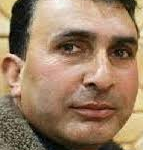Jammu, Dec 09: Highlighting the persistent efforts of the government to enhance security and elevate the standard of living in Jammu and Kashmir, Union Home Minister and Minister of Cooperation, Amit Shah, underscored the significant progress achieved in the region under the guidance of Prime Minister Narendra Modi.
Union Home Minister disclosed that the Right to Education Act, Land Acquisition and Compensation Act, Forest Rights Act, SC-ST Prevention Atrocities Act, Whistle Blower Protection Act, Juvenile Justice Act and Minority Commission Act, 1992, which were put on hold by the previous governments are now being implemented under Modi government.
Shah highlighted the establishment of a Backward Classes Commission, which engaged with 198 delegations and 16,000 individuals over 750 days. The commission’s comprehensive approach involved hearings in all 20 districts, considering around 26,000 applications. A key outcome was the reform of the Jammu and Kashmir Reservation Act, with Prime Minister Modi officially recognising the community as Other Backward Classes.
Shah questioned the opposition’s resistance to recognising backward classes, pointing out their opposition to the constitutional status of the Backward Classes Commission for seven decades..
The Union Home minister also criticised the opposition’s handling of reports such as the Kaka Kalelkar Commission and the delayed implementation of the Mandal Commission report. Shah praised the Modi government’s commitment to reservation, providing opportunities for backward class children in Sainik Schools, NEET, and Kendriya Vidyalayas. He highlighted the provision of 10 per cent reservation for economically weaker sections (EWS).
Addressing legal and constitutional issues raised by the opposition, Shah defended the abrogation of Article 370, emphasising its temporary nature. The move, executed by Prime Minister Modi on August 5, 2019, marked a significant shift, with Kashmiri, Dogri, Hindi, English, and Urdu becoming the official languages.
Shah outlined the Modi government’s strategic plans, including the Zero Terror Plan and area domination, aiming to curb terrorism and external financial support. Notably, 32 cases under terror finance have been registered, resulting in 229 arrests and the seizure of significant assets.
He said that under the Har Ghar Tiranga campaign, there was not a single house in the valley where the Tricolour was not hoisted, this change has taken place there. He said that today every festival is celebrated with joy and happiness at Lal Chowk and people from every community participate in it. The spirit of the Constitution has now been taken to the grassroots level there.
Later on cultural development, Shah said cinema halls reopened in Jammu and Kashmir in 2021 after 30 years.
“A multiplex was built in Srinagar, 4 new theaters opened in Pulwama, Shopian, Baramulla and Handwara and shooting of more than 100 films started. Bank loan proposals for about 100 cinema halls are under consideration by the banks,” Shah said .
Shah mentioned the construction of a multiplex in Srinagar, the opening of new theatres, and the initiation of over 100 film productions.
HIGHLIGHTS
Key Legislation: Implementing crucial acts for education, land, & minority rights.
Backward Classes Recognition: Commission formation leads to OBC acknowledgment
Zero Terror Plan: Strategic measures against terrorism
Cultural revival: Cinema halls reopen, over 100 films initiated
Language Diversity: Recognition of five official languages.
Har Ghar Tiranga: Successful tricolour initiative in every home.
Cinematic Growth: New cinemas considered, film production surges.








